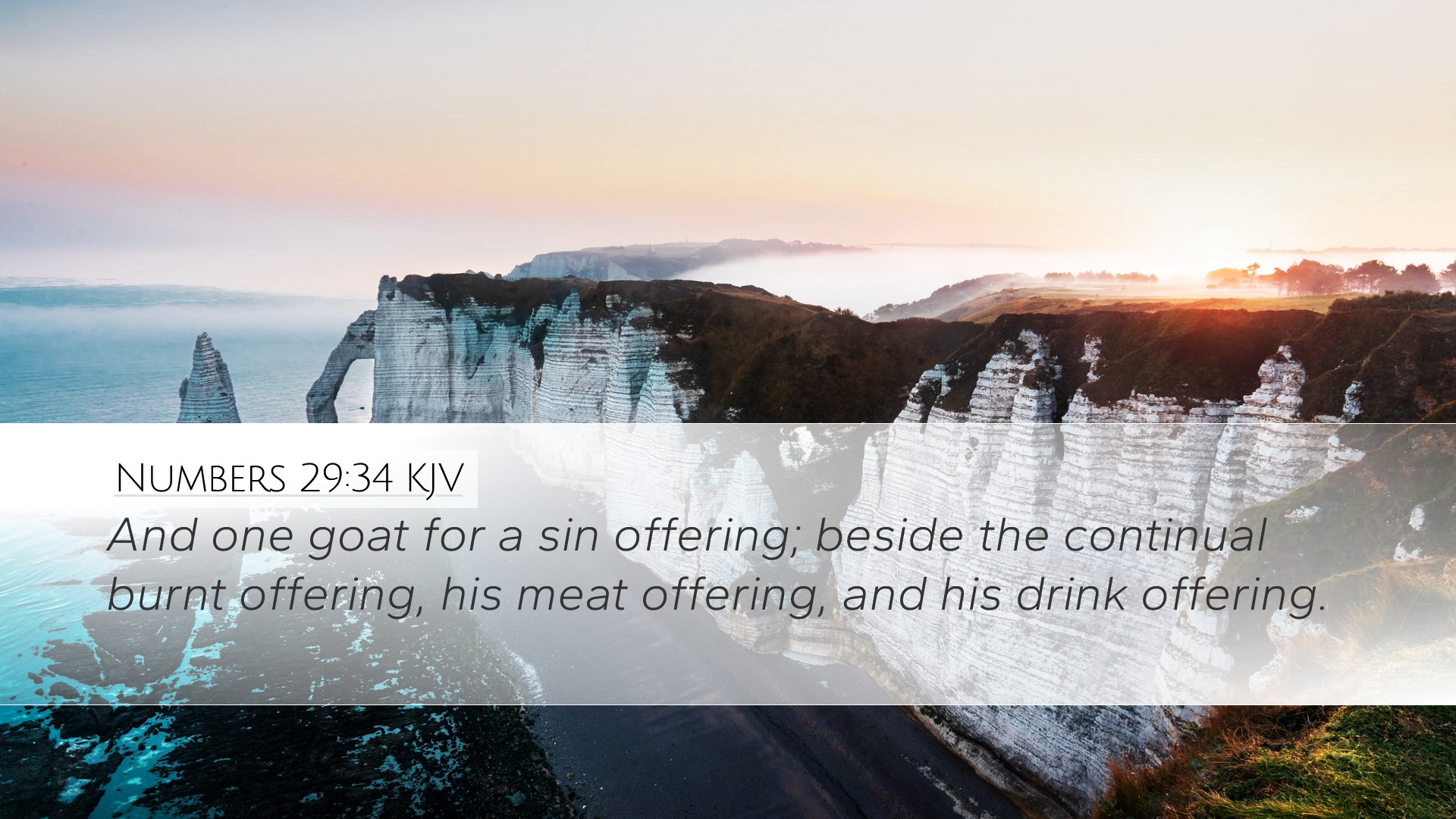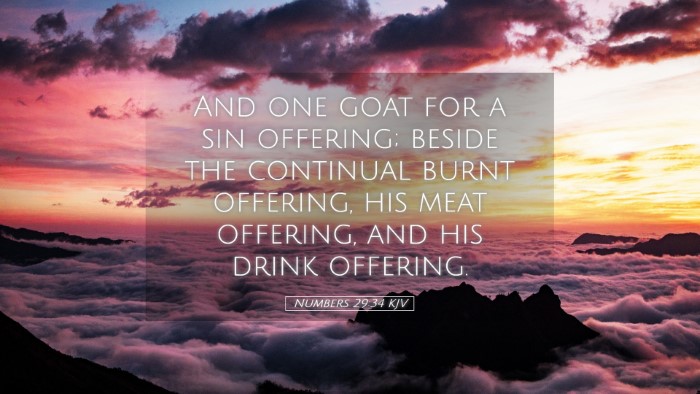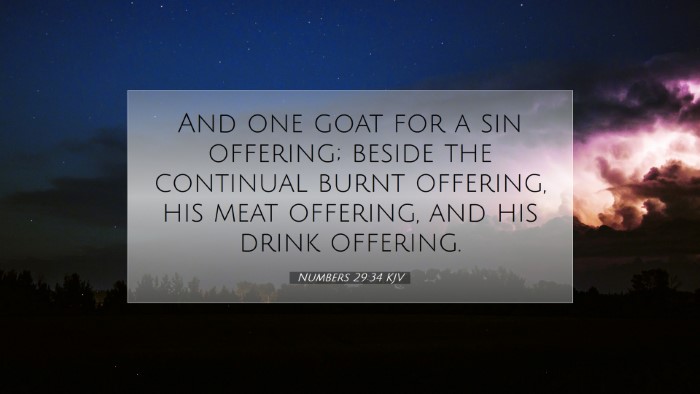Commentary on Numbers 29:34
Bible Verse: "But ye shall offer a bullock, and a ram, and seven lambs of the first year; they shall be unto you without blemish:" (Numbers 29:34)
Introduction
The book of Numbers presents numerous instructions regarding sacrificial offerings, which are key to understanding worship and atonement in the Israelite community. In Numbers 29:34, specific instructions surround the offerings made during the Feast of Tabernacles, emphasizing not only the significance of the act but also the condition of the offerings. This verse invites a closer examination of the theological implications of sacrifice, the character of God’s people, and the symbolism of the offerings. Drawing insights from esteemed theologians and commentators provides a well-rounded examination of this passage.
Exegesis of the Text
Matthew Henry's Commentary: Henry emphasizes that the offerings prescribed are intended for the worship of God, highlighting that a bullock, a ram, and seven lambs symbolize completeness and perfection in worship. The term “without blemish” signifies the necessity of presenting our best to God, reflecting His holiness and deserving worship.
Albert Barnes' Notes: Barnes notes the significance of the number and types of animals required. Specifically, the bullock represents strength, the ram indicates leadership, and the seven lambs symbolize purity and innocence. Barnes insists that the meticulousness of the sacrifices serves as a reminder to the people regarding the seriousness of atonement and worship.
Adam Clarke's Commentary: Clarke adds another dimension by highlighting the communal aspect of the offerings during the Feast of Tabernacles. He communicates that these sacrifices represent not just individual requests for atonement but collective acknowledgment of God’s provisions. This festival illustrates the unity among God's people as they gather to celebrate and give thanks.
Theological Implications
This verse encapsulates deep theological concepts regarding sacrifice, holiness, and communal worship. Sacrifices, as depicted in this verse, remind believers of the seriousness of sin and the cost of redemption:
- Holiness of God: The stipulation of “without blemish” illuminates the idea that God cannot accept anything less than perfection, prompting believers to reflect on their own offerings of praise, worship, and service.
- Character of Sacrifice: The significance of various animals conveys differing aspects of Christ’s sacrifice and indicates that worship involves various elements of dedication and commitment.
- Communal Worship: The requirement for collective offerings emphasizes unity and shared faith. It implies that worship transcends individual actions, promoting corporate reinforcement of faith and gratitude.
Application for Today
Though the sacrificial system has been fulfilled in Christ, the principles illustrated in Numbers 29:34 are still valuable for modern believers:
- Offering Our Best: Just as the Israelites were to present their best animals, Christians today are called to offer their best time, talents, and resources to God. This commitment reflects a heart aligned with God’s will.
- Cleansed Hearts: The call for ‘without blemish’ urges believers to examine their hearts, ensuring that their offerings—whether prayers, service, or worship—are sincere and pure.
- Community Focus: This verse serves as a reminder of the importance of gathering together as a community in worship, celebrating God’s faithfulness as a body, rather than in isolation.
Conclusion
Numbers 29:34 stands as an instructive verse that shares timeless truths about the nature of worship and sacrifice in the life of a believer. Through the insights of respected commentaries, we see a multidimensional teaching that encompasses holiness, community, and the gravity of offering in response to God’s grace. Pastors, students, theologians, and scholars are encouraged to contemplate not only the historical context of this passage but also its profound implications for worship today. In the light of Christ's ultimate sacrifice, our offerings are to reflect gratitude and devotion, embodying the values God seeks in His people.


